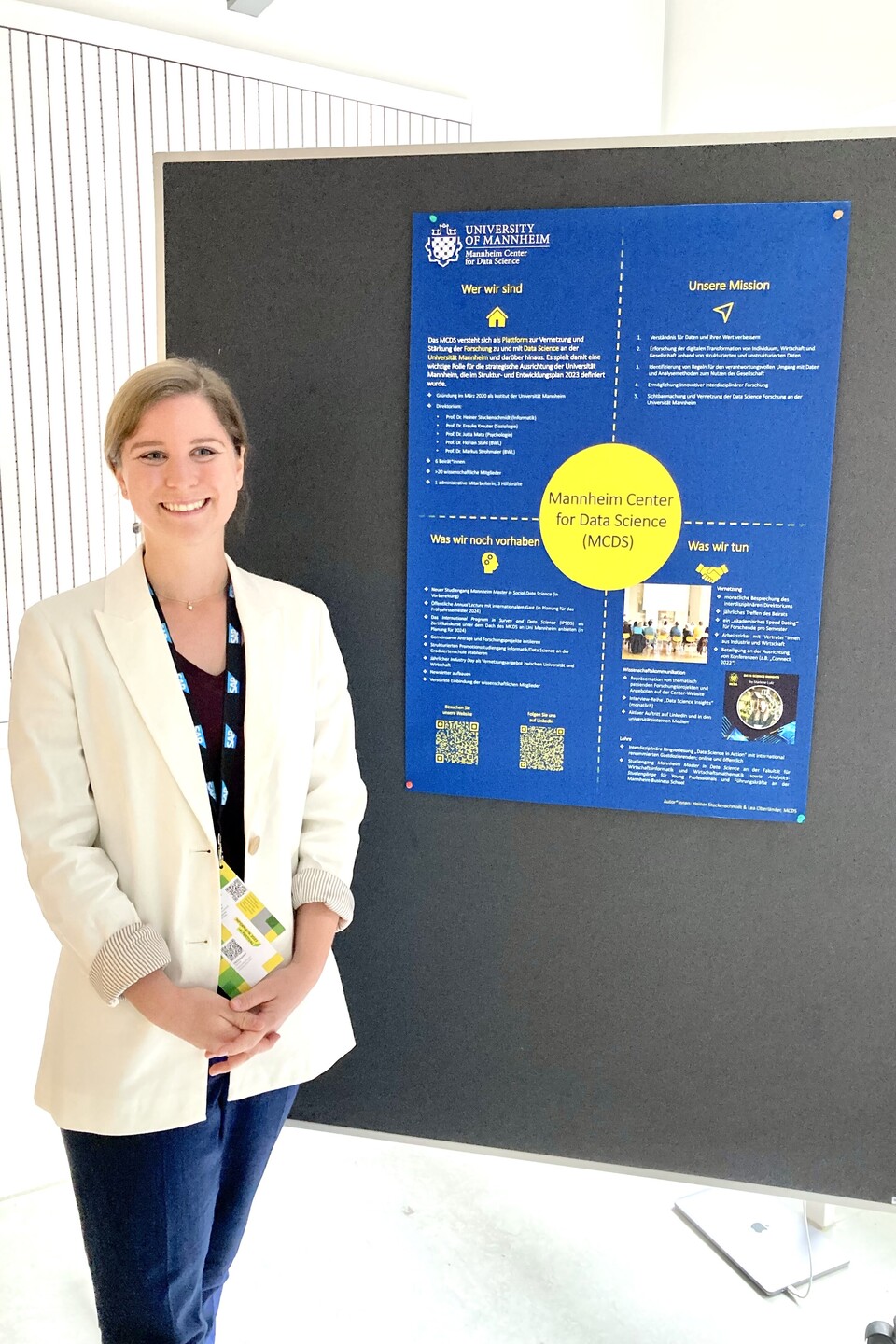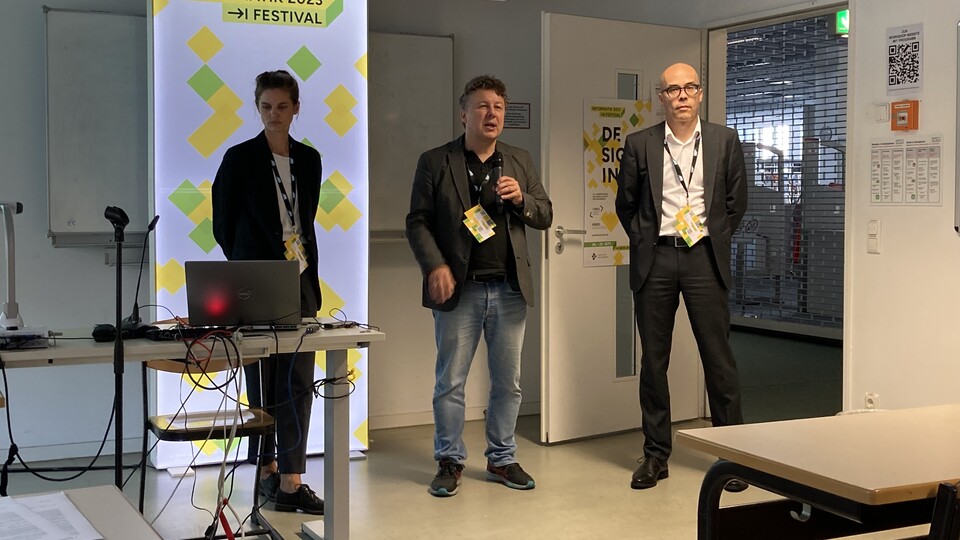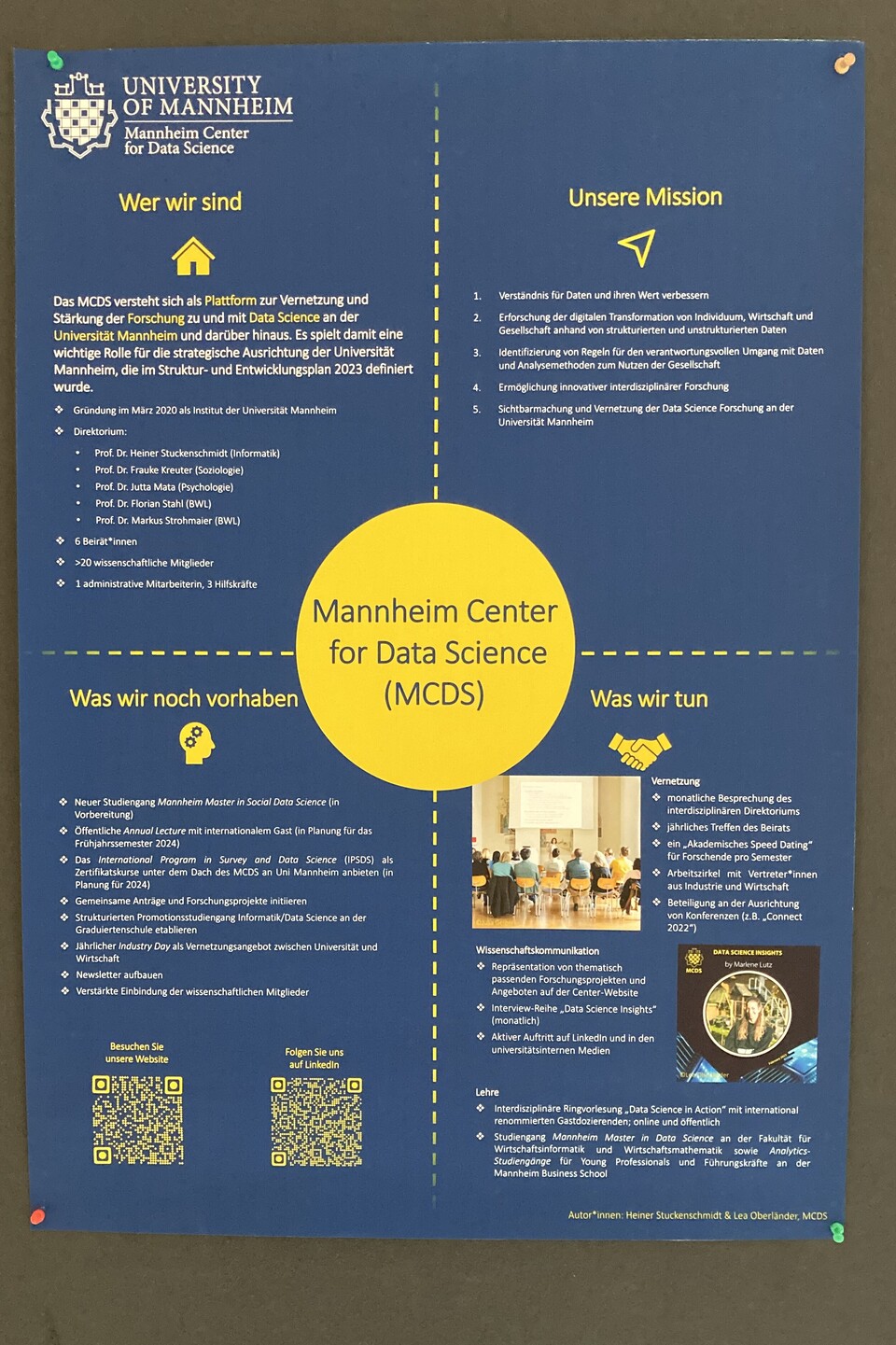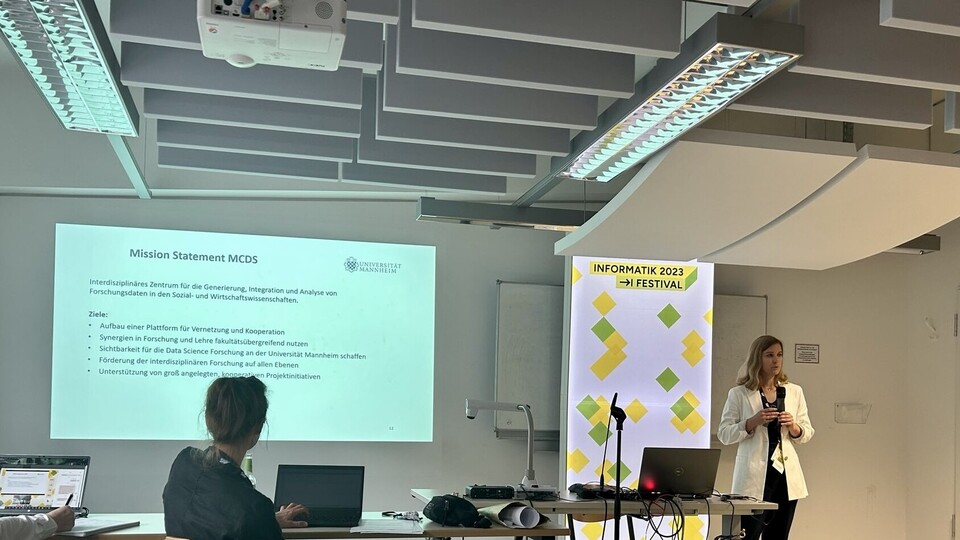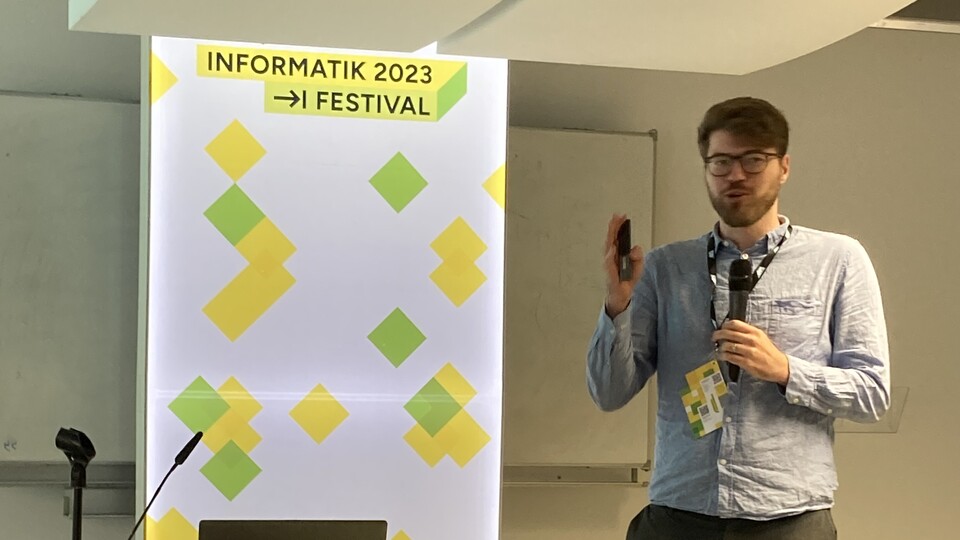MCDS represented at Informatik 2023 in Berlin
In recent years, more and more Data Science initiatives have emerged at universities and in their environment, some of which differed greatly in terms of their offerings, objectives, size and organization. The idea of the workshop, which was organized on the initiative of the Data Science Center of the University of Bremen together with the Digital Science Center of the University of Kiel and the MCDS, was therefore to give such initiatives the opportunity to present their concepts, to exchange ideas and to lay the foundation for a permanent networking in this area.
About thirty participants gathered for this workshop on Friday, September 29, at the University of Applied Sciences in Berlin. Due to the great interest, participation was additionally made possible online. Some presentations, including the contribution to the Mannheim Master in Social Data Science, have been published in the proceedings of Informatik 2023. In addition to the lecture program, a poster session was held, where the MCDS also presented itself.
The program of presentations focused on three main areas, each of which was characterized by a keynote at the beginning of a session and subsequent presentations: The first session was dedicated to Data Science Centers at universities. Among other things, Philipp Wieder presented the Campus Institute Data Science at the University of Göttingen, which could also be transferred to other universities as a large-scale concept. The TU Dresden and the TU Munich also presented broad-based, interdisciplinary institutes.
In the second session, the focus was on data science offerings in the area of study and continuing education. Here, the University of Mannheim was represented twice. Lea Oberländer gave a presentation on the new “Mannheim Master in Social Data Science” program, which was developed jointly by the Faculty of Social Sciences and the Faculty of Business Informatics and Business Mathematics in cooperation with MCDS and will create a unique offering for young scientists in the social sciences starting in the fall semester of 2024. On the other hand, Markus Herklotz presented the BERD Academy, which is part of the consortium BERD@NFDI, in which the University of Mannheim is significantly involved. While Data Science education often focuses on Master's degree programs, Kiel University is currently preparing a unique dual degree program that implements this across Bachelor's and Master's degree programs.
The National Research Data Infrastructure (NFDI) and the topic of research data management rounded off the workshop in the third session. Here, it became clear that the needs and circumstances can vary greatly from state to state and that custom-fit solutions must be developed. Jonas Kuppler's presentation of the “NFDI4Earth Academy”, which brings together scientists from the geosciences on the topic of data science, brought the lecture program to an exciting conclusion.
In the final discussion, there was unanimous agreement that further networking and regular exchange between the various initiatives is desirable. In the future, this could also lead to a formal association as an umbrella organization.
